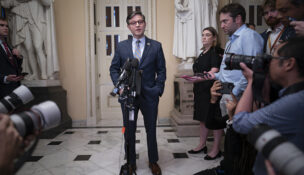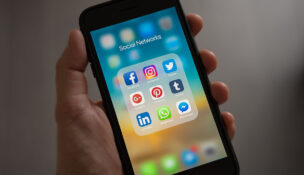U.S. needs a better way to select a president
Arizona Capitol Reports Staff//May 2, 2008//[read_meter]
U.S. needs a better way to select a president
Arizona Capitol Reports Staff//May 2, 2008//[read_meter]
Here we are: The GOP already has its presidential nominee, someone not very well liked by a large segment of Republicans, and the Democrats are down to a political rock star with little experience and the wife of a former impeached president.
Is that the best the Democrats and Republicans can do?
Senators Hillary Clinton and John McCain are both household names, Clinton because of marriage and McCain because he made the most dangerous place to be in Washington between him and a TV camera. Obama is a fresh face, calling for change – a very good political strategy to use against more seasoned politicians. However, does that really make him the best possible choice for president?
The American people already know that the name of the next president. It’s either Clinton, McCain or, Obama, and many of us Americans are not happy with any of them.
Why were we down to just these three poor choices so early? The front loading of primaries gave the candidates with the most name recognition and funding an unfair advantage over lesser-known candidates with less funding. The media didn't help the matter with their "horse-race journalism," which just pushed the best known and most funded candidates further and further ahead of those candidates they labeled as second tier. Some might even say that Clinton, McCain and, Obama are not the choice of the Democrats or Republicans, but rather of the media.
The method used by each individual state to choose their delegates cannot be dictated to by the political parties or federal law. However, the parties can exert extreme pressure on the states in determining in what order they hold their primaries or caucus. Every state cannot be the first state to select their delegates, but by allowing each state to decide when they will choose their delegates, they all try to position themselves to get the most media coverage by being near the front.
Some people have suggested one, big, national primary with every state deciding on the same day. That certainly would benefit the candidate with most money and name recognition but would not be fair to the candidate with little name recognition or money.
The best and fairest method of deciding in what order the states should make their delegate selection is by starting the process early in the election year and spreading it out until June and having the states with the smallest population go first and the states with the largest population decide last. This method gives the candidates with the least resources a fairer shot at getting their message out to the voters and would eliminate the most unacceptable candidates early on.
By spreading the primary season out in this manner, the smaller states would hold their primaries or caucuses in January. And the larger and more expensive states in which to campaign would decide in June when the candidate field has been narrowed down to the most acceptable candidates.
Bob Haran, Phoenix

















